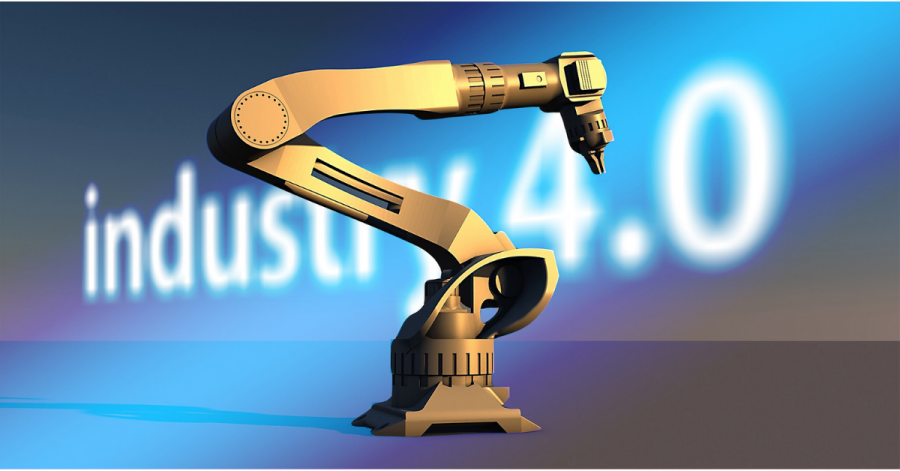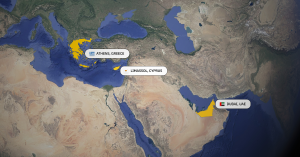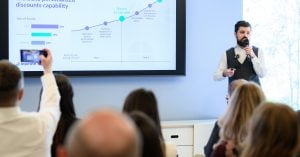For the third consecutive year, the Professional Association of Robotics and Automation (PARA) is releasing a report describing the latest advancements in the Bulgarian automation industry. The economic downturn in Bulgaria resulted in a 12% decrease in the trade sector, a 7% decline in the construction sector, and a 6.2% shrink in national exports.
According to research conducted by the European Investment Bank, in 2020, these events resulted in more than half of the companies in Bulgaria reducing their investment budget plans, as a reaction to the pandemic. Yet, the Association report goes, the local robotics sector has managed to remain active. While local companies such as Allterco expanded to cover medical IoT and telehealth to meet the demand caused by the pandemic, the Bulgarian ecosystem also saw the rise of new and enthusiastic faces in the robotics sector such as EduBots that aims to stimulate children to expand their knowledge in the sphere. In 2020, around 20 thousand young people chose to pursue an education in robotics, with over 18 thousand of them preferring to enroll in one of the many private robotics and automation clubs and academies. Bulgaria is now trying to build a regulatory sandbox to facilitate the testing of innovative products and services. At the same time, the private sector is ahead with the first 50 Bulgarian collaborative robots entering serial production.
So, what were the most important events for the robotics and automation industry in Bulgaria for 2020?
Para showcases achievements in both industrial and professional service robotics.
- Nestle Bulgaria integrated a new robotic assembly line for over BGN23M to facilitate the daily production of over 2.5 million KitKats.
- The mattresses and beds manufacturer TED Bed launched its BGN8.5M profiling workshop for different types of polyurethane foam that features a fully automated production line.
- The Bulgarian engineering center of Festo, one of the biggest players in terms of automation technologies, continued working on a new generation of collaborative robots – the so-called pCobot and took up 40 new projects.
- Bosch Engineering Sofia, the first engineering center of the multinational company in Bulgaria, celebrated its first birthday by achieving an over 100% growth in the number of its employees and creating a hardware development division.
- The room for automated control and quick analysis of the current extraction of ore by “Ada Tepe” established in 2020 is based on the IoT platform of Schneider Electric. It consists of multiple screens and servers with over 25 thousand communication points and 30 controllers that address situations and configure actions with the use of more than 250 network tools.
- Belgian group KBC has integrated for the first time robotic automation systems within its divisions – the State Insurance Institute (DZI) and the United Bulgarian Bank (UBB) with the help of SurfStudio – an innovation lab, part of KBC, operating on a global level to bring about automation in traditional sectors. The RPA platforms are capable of doing simple Excel inquiries and validating information.
- Postbank Bulgaria also optimized its services with the help of Service Centrix in its Credit Administration departments, where RPA machines create documentation using templates, process payments, and enter data from invoices.
- Bulgarian IoT company Allterco Robotics has developed the first in the world functioning innovative oximeter that monitors vital functions of patients from their homes. The first 50 machines are already delivered to the Military Medical Academy (VMA) and the prototype is already being tested in hospitals in Italy and the USA.
- The Bulgarian chatbot solutions company Umni.bg integrated the first tourism chatbot in the international travel company TEZ TOUR. The robot is capable of communicating with tourists, popularising the company products, and making reservations and has communicated with over 4200 clients.
- The team of the law firm Popov, Arnaudov & Partner, the first law firm to have a robot lawyer, has been working on adjusting the EU issued directive 790 to regulate the usage of automated technology for extracting information from texts and data.
- KBDM Law, a law firm specialized in Industry 4.0, has arisen to offer legislative help to citizens who have concerns connected to automation and robotics.
Nevertheless, the mission of the local robotics community was to popularize robotics and automation among people from all social groups through various initiatives. The educational sector was also enlightened by several achievements of students from all over the country.
- In September 2020, “Robo Days 2020” took place as a hybrid educational robotics event focused on promoting the potential robotics and automation possess both as a career field and an economic opportunity.
- Students from the Technical University in Plovdiv created the first robot specialized in gardening. Garden Spark was created during the international “Robot, help us!” competition and aims to optimize the planting process to reduce the number of seeds lost.
- Viktor Kolev, a Bulgarian student, won the opportunity to participate in the Research Science Institute (RSI), a summer program organized by the Center for Excellence in Education and the Massachusetts Institute of Technology (MIT). Kolev has developed an abstract logical thinking project in neural networks.
- The entrepreneurial company created by students EduBots emerged in our ecosystem to provide children between 10 and 14 with robo packages that contain the basic knowledge they need to enter the world of programming, automation, and robotics.
- The PARA RoboticsLab Academy received recognition after a team of its students became national champions in the “STEM Engineering” discipline organized by the Ministry of Education.








